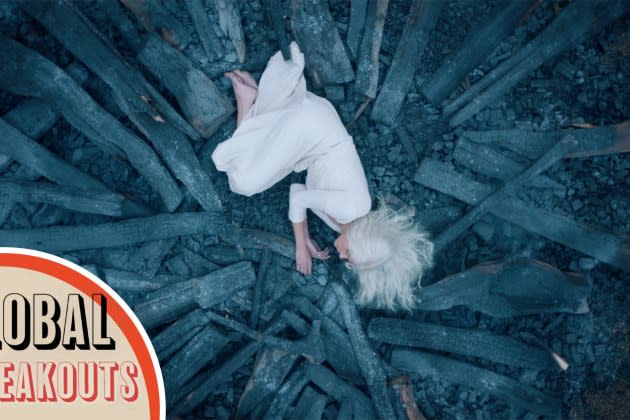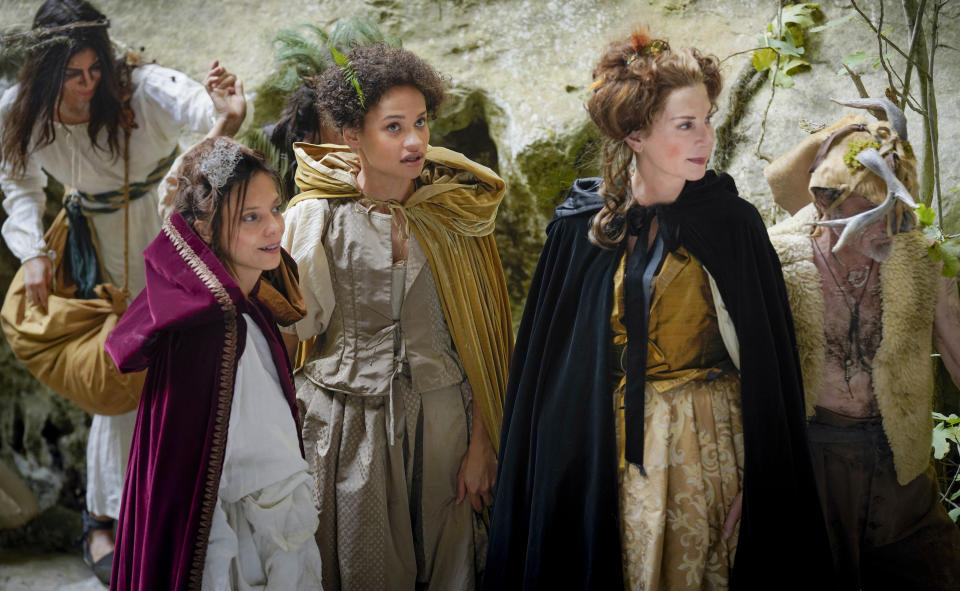French Period Drama ‘Daughters Of Fire’ Combines The Feminist Resistance Of Jane Campion Movies With The Diversity Of ‘Bridgerton’ – Mipcom Breakouts Special

Welcome to Global Breakouts, Deadline’s fortnightly strand in which we shine a spotlight on the TV shows and films killing it in their local territories. The industry is as globalized as it’s ever been, but breakout hits are appearing in pockets of the world all the time and it can be hard to keep track… So, we’re going to do the hard work for you.
We head to France this week, a fitting time to spotlight TV in the nation given that Mipcom Cannes is taking place. France Télévisions’ Daughters of Fire takes a modernistic approach to a tale from some 400 years or so ago and the creators and producers wanted to conjure themes around feminism, resistance and #MeToo when forging the drama series.
More from Deadline
Vix Orders Drama Series 'Todo Lo Que Fuimos' From Fremantle-Backed Producer The Immigrant
Lagos-Set Drama 'Victoria Island' In The Works From Taiye Selasi, Nicholas Weinstock & Fremantle
Name: Daughters of Fire
Country: France
Producer: Kwaï
Distributor: Fremantle
For fans of: Jane Campion movies, Bridgerton
In the Basque Country more than 400 years ago, societies existed in which the men went out to hunt while women worked and ruled the roost at home.
Somewhat unsurprisingly, the lie of that particular land was spoiled when jealous men decided the women were witches, and it is this fascinating tale that is told in Daughters of Fire, which launched on France Télévisions in August and is being shopped at this week’s Mipcom Cannes by Fremantle, Deadline can reveal.
The series is set in Basque in 1609. Coming from a long line of healers, three sisters who had previously led peaceful lives are suddenly put in danger by the arrival in the region of judge Pierre de Lancre, a demonologist commissioned by King Henry IV. Terrified and soon obsessed with women’s freedom and knowledge, Pierre will lead what will be one of the deadliest witch hunts in France. Show stars Anabel Lopez (Jeannette), Lizzie Brocheré (Catherine), Bruno Debrandt (Pierre de Lancre), Zoé Adjani (Morguy), Marc Ruchmann (Damien), Wendy Nieto (Madeleine), Axel Mandron (Zéphyr) and Tom Hudson (Cariel).
“It is a producer’s dream to do a period drama like this one,” says Stéphanie Carrère, who runs Fremantle-backed Daughters of Fire producer Kwaï. “When I was young I wrote a lot about Princesses and Queens and Versailles and now with the movement of feminism I prefer to tell the story of great women and their fights of resistance.”
Daughters of Fire took many years to get to screen and has been something of a cherished project for Carrère, who says she was inspired by the movies of Jane Campion and, in its diverse portrayal of a different era, Shonda Rhimes’ Netflix smash Bridgerton. “The audience accepts this form of diversity now so we could create characters like this,” she adds.
“Not your usual period drama”

Daughters has so far reaped rewards for the French public broadcaster, securing a 3M overnight for its first and second episodes.
Jens Richter, Fremantle’s CEO of Commercial and International, says “this is not your usual period drama,” which he adds was a big attraction for Fremantle when pondering whether to take on for distribution.
“This is history but we are working with real young voices so it feels fresh and young,” he adds. “It’s beautifully shot, cinematic and the female characters are very strong.”
Richter ponders how the series initially turns patriarchal society on its head. Men used to go out whale-hunting and therefore women worked and ran businesses, as well as looking after the home, until chauvinism returned in the form of the witch hunter. “It’s surprising to learn the crazy reasons and rationales he gave for his behavior,” adds Richter.
With the topsy-turvy nature of this patriarchal-matriarchal society in mind, Carrère, who regularly mentors young scribes, was always keen to bring in writers of a newer generation, although this at times led to clashes.
#MeToo
“We disagreed over some scenes,” she explains. “Young women in France are more radical than people like me – for them it’s a real fight – but we learned from each other.”
Carrère says the “story of resistance” embedded within Daughters conjured themes surrounding the #MeToo movement, which has had a major impact in France.
“It feels like the same story each week,” she adds. “It’s still very complicated and is certainly not black or white. I think sometimes French people love the color grey.”
France’s TV industry has done well to shield itself from the major impacts of the dual U.S. labor strikes, although of course the ripples have been felt around the globe.
Going forwards, Carrère says there is a need to “be ambitious and propose new shows” based on entirely original IP in the nation, which can pivot to the international market.
“It is hard because of problems of inflation,” she counters. “People need quality shows so it becomes a question of money, and budgets are not moving upwards.”
With his global purview in mind, Richter says networks are seeking not just gangbuster ratings but also buzz and “traffic.”
“They are going less for highly complicated, dark shows at the moment because times are tough,” he says. “There is a real clear focus on shows that entertain and drive traffic. It can be an original story with an amazing plot but the show, like Daughters of Fire, needs to come with a very strong USP.”
Best of Deadline
2023-24 Awards Season Calendar - Dates For Oscars, Emmys, Grammys, Tonys, Guilds & More
SAG-AFTRA Interim Agreements: Full List Of Movies And TV Series
Sign up for Deadline's Newsletter. For the latest news, follow us on Facebook, Twitter, and Instagram.


